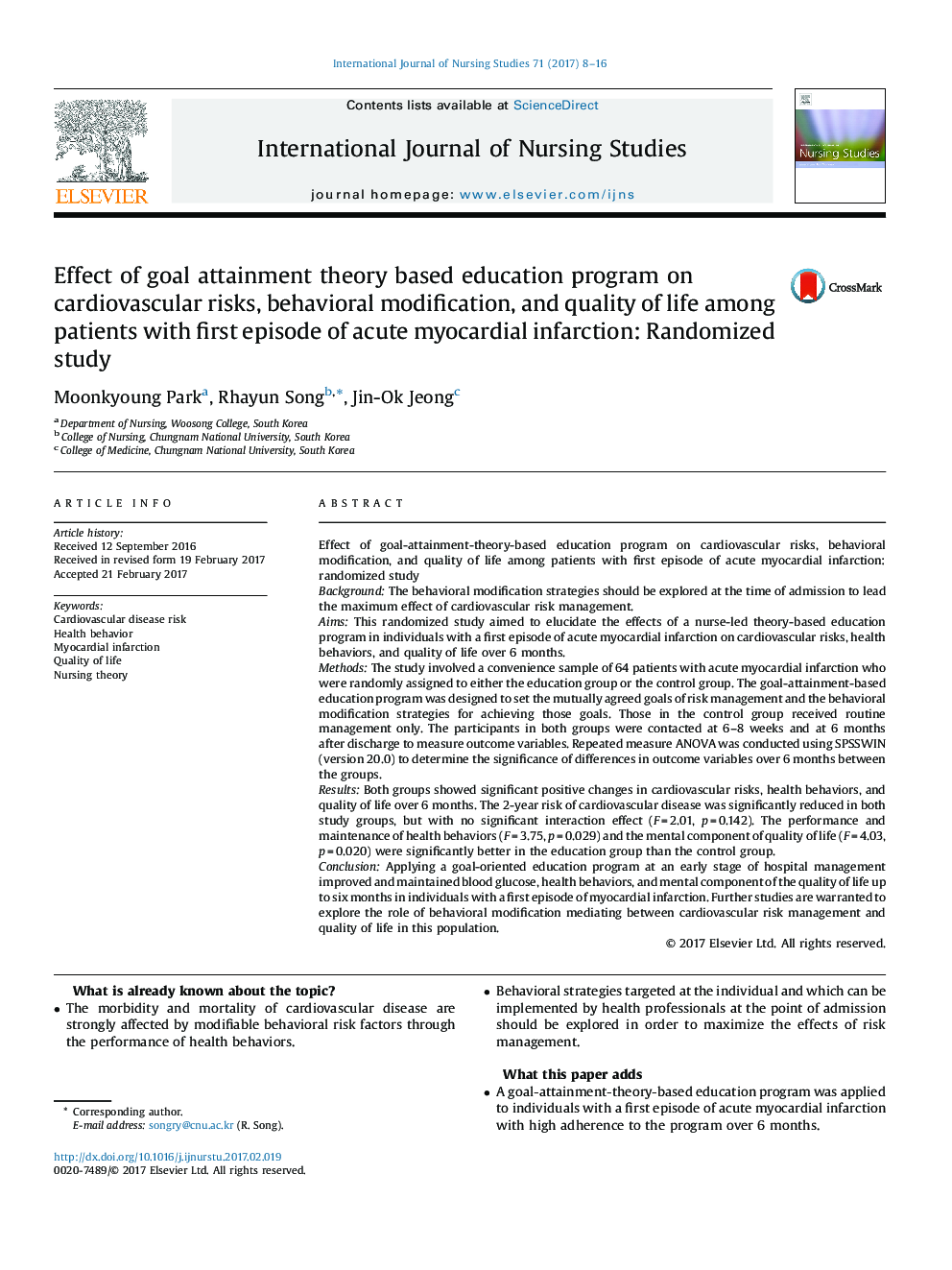| کد مقاله | کد نشریه | سال انتشار | مقاله انگلیسی | نسخه تمام متن |
|---|---|---|---|---|
| 5121100 | 1486498 | 2017 | 9 صفحه PDF | دانلود رایگان |
Effect of goal-attainment-theory-based education program on cardiovascular risks, behavioral modification, and quality of life among patients with first episode of acute myocardial infarction: randomized studyBackgroundThe behavioral modification strategies should be explored at the time of admission to lead the maximum effect of cardiovascular risk management.AimsThis randomized study aimed to elucidate the effects of a nurse-led theory-based education program in individuals with a first episode of acute myocardial infarction on cardiovascular risks, health behaviors, and quality of life over 6 months.MethodsThe study involved a convenience sample of 64 patients with acute myocardial infarction who were randomly assigned to either the education group or the control group. The goal-attainment-based education program was designed to set the mutually agreed goals of risk management and the behavioral modification strategies for achieving those goals. Those in the control group received routine management only. The participants in both groups were contacted at 6-8 weeks and at 6 months after discharge to measure outcome variables. Repeated measure ANOVA was conducted using SPSSWIN (version 20.0) to determine the significance of differences in outcome variables over 6 months between the groups.ResultsBoth groups showed significant positive changes in cardiovascular risks, health behaviors, and quality of life over 6 months. The 2-year risk of cardiovascular disease was significantly reduced in both study groups, but with no significant interaction effect (F = 2.01, p = 0.142). The performance and maintenance of health behaviors (F = 3.75, p = 0.029) and the mental component of quality of life (F = 4.03, p = 0.020) were significantly better in the education group than the control group.ConclusionApplying a goal-oriented education program at an early stage of hospital management improved and maintained blood glucose, health behaviors, and mental component of the quality of life up to six months in individuals with a first episode of myocardial infarction. Further studies are warranted to explore the role of behavioral modification mediating between cardiovascular risk management and quality of life in this population.
Journal: International Journal of Nursing Studies - Volume 71, June 2017, Pages 8-16
